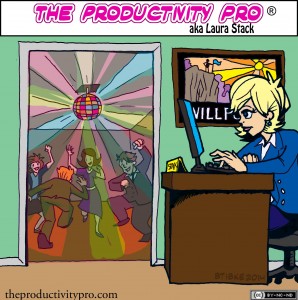“Willpower is the key to success. Successful people strive, no matter what they feel, by applying their will to overcome apathy, doubt, or fear.” — Dan Millman, American author.
 Did you know that you have a limited supply of willpower—and that when you use it up, it’s gone until you replenish it? That’s the conclusion of Kelly McGonigal, Ph.D. in “The Willpower Instinct: How Self-Control Works, Why It Matters, and What We Can Do to Get More of It” and Roy F. Baumeister in “Willpower: Rediscovering The Greatest Human Strength,” who have studied the issue.
Did you know that you have a limited supply of willpower—and that when you use it up, it’s gone until you replenish it? That’s the conclusion of Kelly McGonigal, Ph.D. in “The Willpower Instinct: How Self-Control Works, Why It Matters, and What We Can Do to Get More of It” and Roy F. Baumeister in “Willpower: Rediscovering The Greatest Human Strength,” who have studied the issue.
Believe it or not, even something as simple as deciding between a pumpkin spice latte and a Frappuccino, or what you want for lunch, can use up part of your day’s limited supply of willpower. Interestingly, your willpower also corresponds to your energy level. Neurologists believe insufficient glucose (the body’s primary fuel) in certain areas of the brain makes you reckless. If you find yourself running low, stabilize your glucose level. Some researchers recommend replenishing your glucose throughout the day to stay on an even keel. You can do this by sipping juice or lemonade sweetened with real sugar, or eating multiple small meals or snacks.
Why is a steady energy level important? When your glucose is low, and your willpower is flagging, you can end up making compulsive decisions, wasting time, and doing things you’ll regret later. Ever wonder, “What the heck was I thinking?” regarding a business decision, or an hour-long splurge on social media when you should have been working and producing? It’s not just something you can brush off as a momentary aberration or a lapse in judgment. Usually, you did it on purpose. It’s an actual physiological response to lack of energy—you didn’t have the capacity to do anything else—and you needed to recharge. This is compulsive decision making at its finest, and you can fix it.
Here’s an example of an exchange from October 2013 that demonstrates compulsive behavior on both sides of the management gap—behavior that had severely negative repercussions for both people involved. During a conference call including 1,000+ workers, AOL CEO Tim Armstrong fired creative director Abel Lenz for taking his photo while he was speaking—in keeping with a company directive that private conferences were not to be recorded in any way. The other employees, who had expected to be fired up by a patented Tim Armstrong rally-the-troops speech, were aghast that someone was fired instead.
Needless to say, this was leaked to the press almost immediately. Armstrong took a lot of flak for the abrupt dismissal of the man who had created the Patch website in the virtual presence of a thousand of his co-workers. A few days later he apologized deeply, including to Lenz personally, for firing him—but he didn’t hire him back, because Lenz had broken a firm rule. He had compulsively decided to take that photo, and Armstrong had compulsively fired him.
Counting to Ten
Has a lack of self-control caused you harm in the past? For example, have you ever received an inflammatory message and responded with the same, only to later wish you hadn’t fired off that response? Take it from me—next time, choose to hit SAVE and do not send it. Go do something productive for a while, and then come back to the message and respond as positively as you can, as calmly as you can.
Self-control has to be practiced constantly. If you finish a task, don’t waste time just because you “deserve” it (unless it really is time for a break). If you have to make a conscious choice, you’re in danger of compulsively deciding to do the wrong thing. Instead, tackle the next item on your list in order of value. Ideally, you should work on your highest remaining priority first, but if you can’t bring yourself to do that, at least do something on your list, instead of playing around on the internet or checking and rechecking your email for the rest of the day.
Running on Empty
In general, you’ll have more willpower if you feel good, so get your sleep, hydrate yourself properly, eat well and moderately, exercise, and surround yourself with happiness. Don’t let compulsiveness teach you a lesson the hard way—as Abel Lenz and Tim Armstrong did.
© 2014 Laura Stack. Laura Stack, MBA, is America’s Premier Expert in Productivity™. For over 20 years, Laura has worked with business leaders to execute more efficiently, boost performance, and accelerate results in the workplace. Her company, The Productivity Pro, Inc., provides productivity workshops around the globe to help attendees achieve Maximum Results in Minimum Time®. Laura is the bestselling author of six books, with over 20 foreign editions, published by Random House, Wiley, and Berrett-Koehler, including her newest work, Execution IS the Strategy (March 2014). Widely regarded as one of the leading experts in the field of performance and workplace issues, Laura has been featured on the CBS Early Show, CNN, the Wall Street Journal, and the New York Times. Connect via her website, Facebook, or Twitter.


